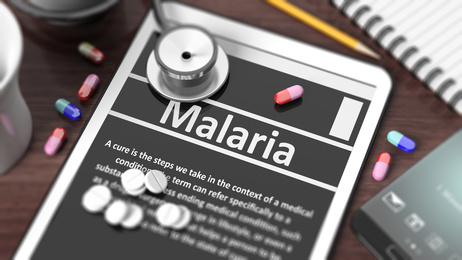The first-in-human study of the new investigational antimalarial drug is being sponsored by the US National Institute of Allergy and Infectious Diseases (NIAID), part of the National Institutes of Health (NIH). This is a phase 1 trial to evaluate the safety and pharmacokinetics of single and multiple ascending doses and effect of food on the pharmacokinetics of the novel antimalarial drug in healthy adults.
The new study, led by principal investigator Michael Cohen-Wolkowiez, M.D., Ph.D., professor of paediatrics at the Duke Clinical Research Institute, is testing an investigational drug called DM1157, invented at Portland State University and developed by DesignMedix, both based in Portland, Oregon.
The novel treatment is a modified form of chloroquine, an established antimalarial drug that kills malaria parasites once they have infected human red blood cells. Many strains of Plasmodium falciparum parasites, which cause the deadliest form of malaria, are now resistant to chloroquine, and the parasites can expel the drug before it can affect them. Like chloroquine, DM1157 interferes with the parasite’s metabolism, but it also inhibits the parasite’s ability to expel the drug. Results of earlier tests in animals suggest that DM1157 could have the same safety and efficacy as chloroquine.
The primary objectives of the study are to:
- assess the safety and tolerability of single doses of DM1157 at levels ranging from 9 mg to 900 mg;
- assess the safety and tolerability of DM1157 administered as single daily doses for 3 days at levels ranging from 150 mg to 900 mg;
- assess the safety and tolerability of DM1157 administered with or without food
According to the WHO estimates, about 216 million new malaria cases and 445,000 deaths occurred in 2016, primarily among children living in sub-Saharan Africa. Although several approved treatments for the mosquito-borne disease exist, increasing drug resistance among the malaria-causing parasites is diminishing their effectiveness.
DM1157 is designed to provide a cure for drug-resistant malaria and has been shown to overcome drug resistance in blood samples from patients infected with drug-resistant malaria parasites.
Further reading: ClinicalTrials.gov

